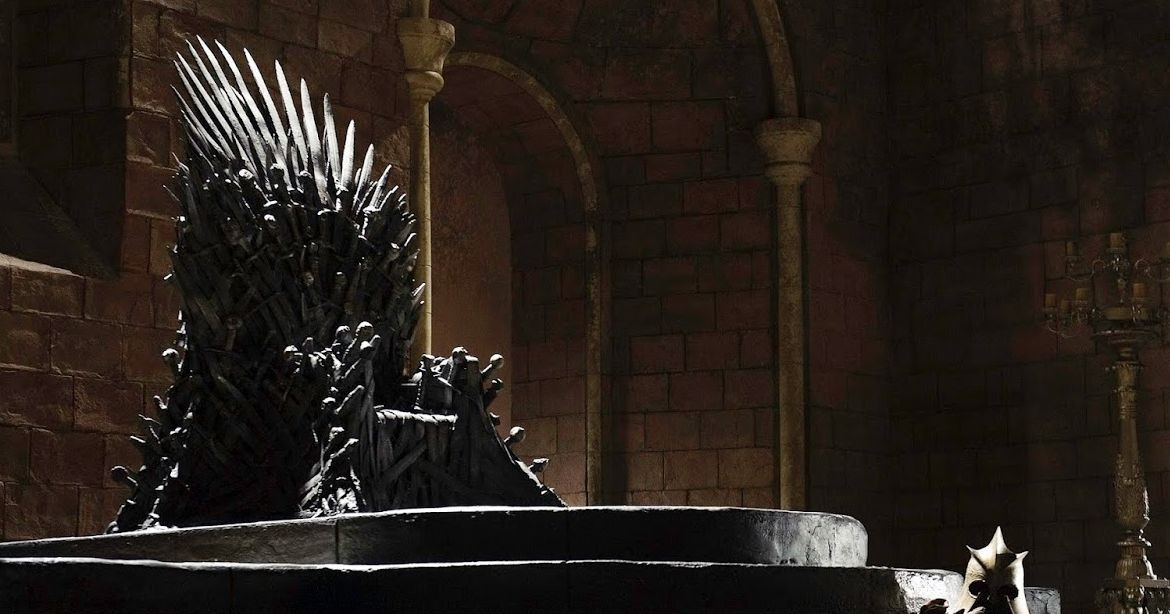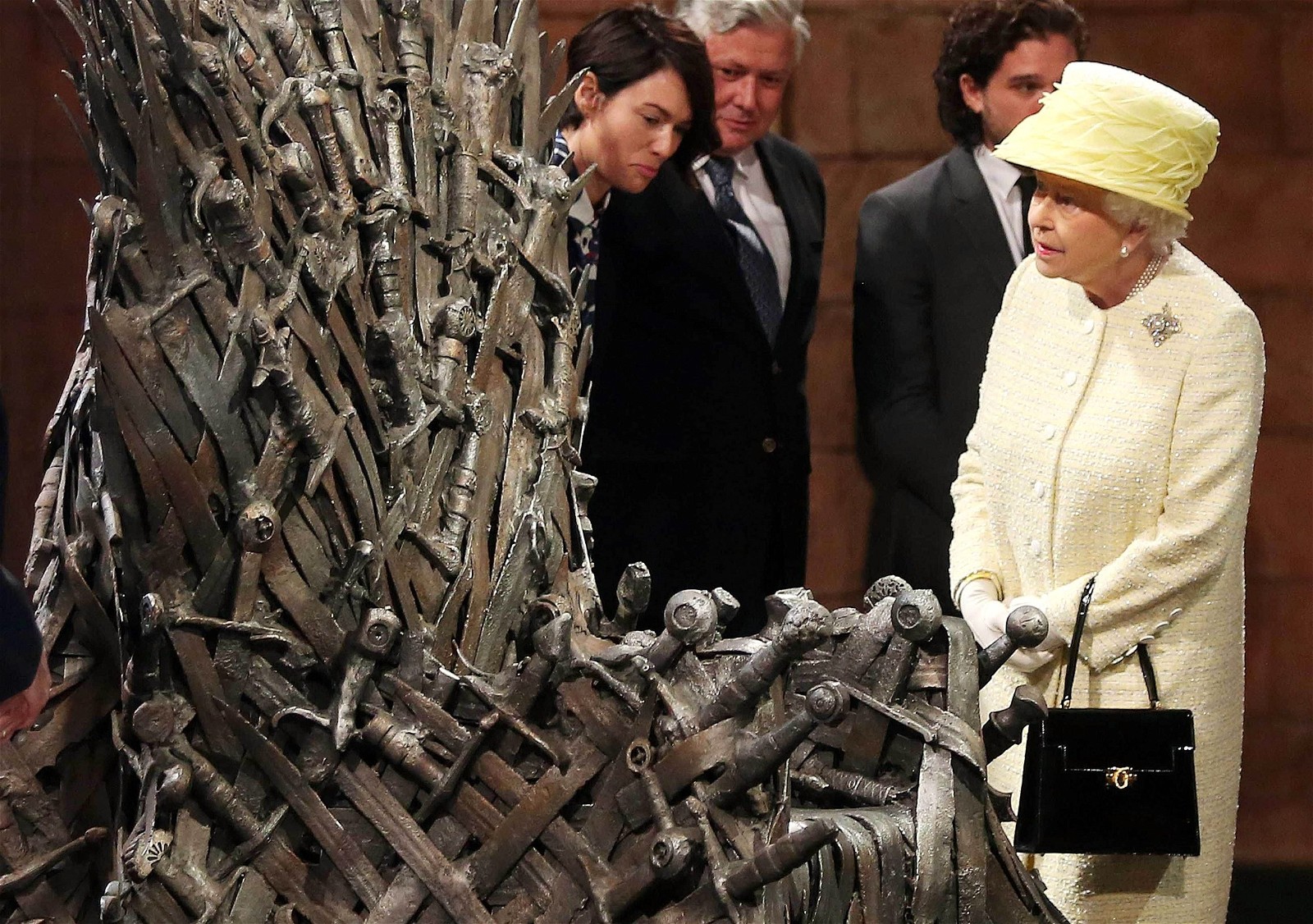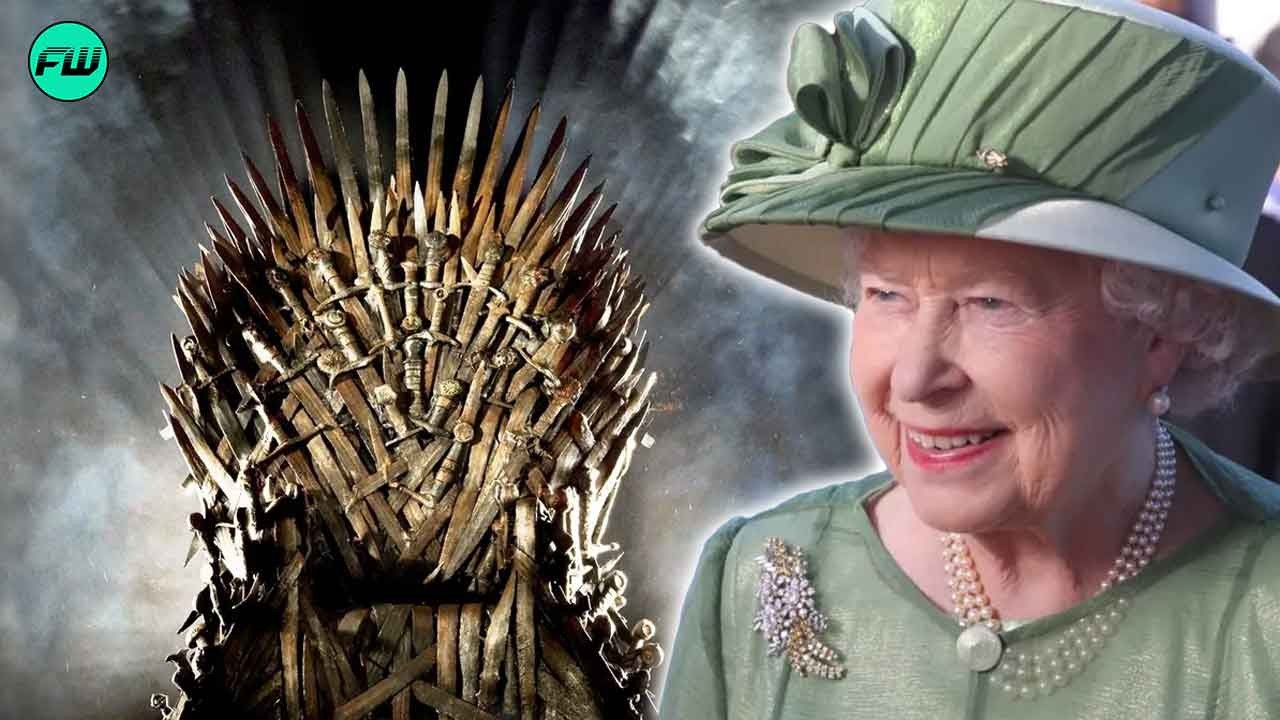The monarchy and the empire, both are symbols of Game of Thrones and Britain’s extant heritage. When George R. R. Martin had weaved the threads of his epic fantasy, he had taken all the inspiration he could get from his country and its bloody history. The outline of England inspired the map of Westeros. The War of the Roses inspired the War of the Five Kings. The feuding noble families of Lancaster and York inspired the Houses of Lannister and Stark. And as such, it would only be appropriate if the one holding dominion over the throne would be inspired by the Queen in power at the time of GoT‘s conception.

Game of Thrones‘ Rise to Global Fame and Deification
The world of Westeros holds power over us all. Like Gollum with the One Ring, we are enamored by the cruelty of the force ruling over the fictional world and too entranced to look away or let go. It then doesn’t come as a surprise that Game of Thrones would call to our conflicted morals and the depiction of the baser nature of a violent world would skyrocket the fictional creation to the heights of fame.

George R. R. Martin’s A Song of Ice and Fire has managed to influence every aspect of modern-day demography and its popular culture, especially since the launch of its televised version, Game of Thrones. And it’s not surprising that a literary work capable of holding such a magnitude of power wouldn’t reach the ears of the Queen herself. Given that most of the shooting of the HBO series would be held within the UK, the visit of the monarch to the set of the show was almost inevitable.
Queen Elizabeth II’s Encounter with the Iron Throne
The edifice of ultimate power — the Iron Throne has an allure of its own. And upon the visit of the Queen of the United Kingdoms to the set of Game of Thrones, it was an unspoken agreement that she would be offered to sit on the only chair that holds more power than a La-Z-Boy recliner. But when the monarch was asked to have a seat, she politely declined.

The rejection was not so much a flat-out refusal as the upholding of ancient law. The practice which has become redundant now states that a reigning monarch cannot sit on a throne unless it’s his or her own. And as such, sitting on any other throne may be considered an unwarranted act of aggression, especially on foreign soil.
Source: We Are The Mighty










